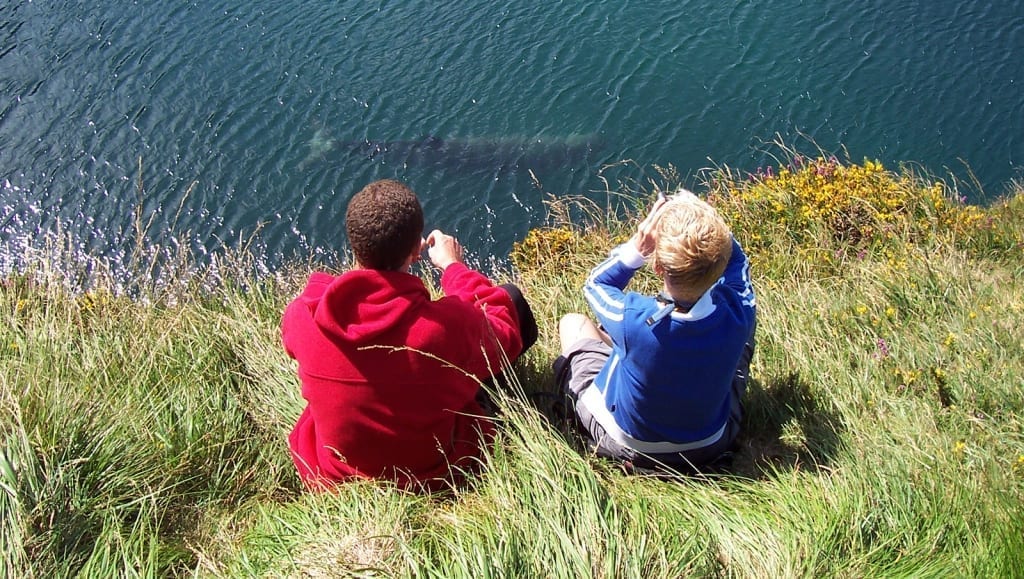FF, FG and the Green Party are welcome to dip into our proposals in their negoiations for government.
4 February 2020
Whatever the results of the forthcoming election, any new government is likely to involve a coalition between two or more parties. During negotiations to form a new government, parties will propose actions, which could be incorporated into a new “Programme for Government”.
The Irish Whale and Dolphin Group (IWDG) presents a number of actions, which it considers are the priorities to include in a new Programme for Government over the next 5 years.
- Establish new Marine Conservation Zones (MCZs) for whales, dolphin and porpoises, both inshore and offshore. The IWDG considers that a tiered approach with different management strategies relevant to the species and sites is more effective and practicable. These management strategies include complete restrictions to time-area closures, restrictions of particular activities shown to be either detrimental to cetaceans and their habitats and enhancement of particular activities shown to be beneficial. MCZs (also referred to as Marine Protected Areas) should share real powers with local Stakeholder Groups to contribute to MCZ management.
- Publish site specific Conservation Management Plans (CMPs) for all Marine Special Areas of Conservation with dolphins and porpoises as qualifying interests including site specific, targeted actions. These CMPs should be prepared following real engagement with all stakeholders. Currently, there are three SACs for harbour porpoise and two for bottlenose dolphin but these CMPs are generic with no specific actions targeted at the site.
- Increase the budget for the National Parks and Wildlife Service (NPWS) by 50% immediately and 50% each year thereafter up to €100 million per annum. Funding should be ring-fenced to deliver key actions including research, education and recording, as well as management actions.
- Establish an Advisory Group to the NPWS, which includes Non-Government Organisations and third-level Institutes, to develop a long-term strategy for the protection and monitoring of whales, dolphins and porpoises and their habitats in Irish waters. Enforcement of current laws and measures need to be strengthened to ensure compliance, including bycatch monitoring and mitigation, within the Irish EEZ.
- Protect important prey species that whales, dolphins and porpoises depend on. This may be achieved through the CFP by ensuring that the annual Total Allowable Catches follow scientific advice which sets the Maximum Sustainable Yield as the upper limit. Forage fish should not be fished as these are more valuable to Ireland’s economy and well-being if left in the ocean to support a range of predatory species, including commercial species and to support marine tourism and angling, rather than be removed as low value fish-food.
- Review all commercial fishing within marine SACs, with full stakeholder participation. Only when sustainable practices have been agreed should commercial fishing continue in these Sites of European Community Interest.
- Support noise reduction measures in the marine environment including sound mitigation and quieter ships to reduce the negative effects of noise pollution on cetaceans.
- Stop seismic surveying for oil and gas in Irish waters. Leave these reserves in the ground and not extract to burn. This would also contribute to Irelands’ commitment to Climate Change Actions.
- The Irish Government should work with the EU and other nations to ban the use of mid and low-frequency active sonar within Irish waters. These types of sonar can result in mortality of deep-diving cetacean species in our offshore waters. No meaningful mitigation is possible as our shelf slopes and abyssal waters are used by a wide range of cetaceans all year round.
- Promote sustainable marine wildlife tourism to enable people in Ireland to experience the rich marine biodiversity including whales and dolphins as well as seabirds, seals and basking sharks. This would help create an understanding of the unique value and richness of our marine biodiversity for Irish people and visitors from abroad. It would also bring economic benefits to coastal communities and new commercial opportunities for those looking to diversify away from a sole reliance on declining income from fisheries.
The Irish Whale and Dolphin Group is an all-Ireland NGO dedicated to the conservation and better understanding of cetaceans (whales, dolphins and porpoises) in Irish waters through study, education and interpretation.
For more information see
www.facebook.com/IrishWhaleandDolphinGroup/
![]()

